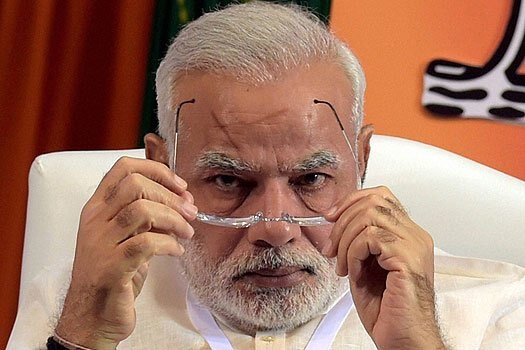Explorer
Surgical strike a turning point in Modi’s Prime Ministership

Much has been said and written about the possible external manifestations of the post Uri retaliatory surgical strike by India, but the potential domestic ramifications of the action are no less significant.
Seeing the support and plaudits for the Government's action from politicians, journalists and opinion-makers across the spectrum – one Twitter buddy quipped “it suddenly seems 16/5” (meaning 16 May, 2014, the day the Lok Sabha election results were announced). It was a similar shock and awe moment for the country.
While people may debate if the operations across the LoC can be termed as a 'surgical strike' or not, Prime Minister Narendra Modi and his core team succeeded in carpet bombing many of the misconceptions and misinformation about his Government in one fell sweep.
Since, the day of the Uri attack there were a lot of snide remarks and general scepticism about the Modi Government's strategy to isolate Pakistan diplomatically. One Chief Minister went to the extent of tweeting "in trying to isolate Pakistan, India itself has got isolated". He later deleted the tweet. Like him many were forced to eat their words. The subject was sealed for good when even Sri Lanka also withdrew from the SAARC summit in Islamabad.
The nation had not seen this kind of mobilisation of International opinion in such a short time. Such swift action could not have been possible without seamless teamwork and months of multi-pronged effort at building a supportive network. It debunked the myth of Sushma Swaraj being sidelined, as her speech at the UNGA would now appear to be part of the carefully crafted script.
Finally, while systems, bureaucracy and back-channel diplomacy are all critical, the true differentiator is the standing of a leader in the global community. On this, today Pakistani journalists are forced to admit that Narendra Modi’s clout and credibility has soared, putting Nawaz Sharif at a palpable disadvantage.
Most importantly, it applied scotch-tape on the lips of those who mocked the frequent foreign trips of the Prime Minister. As Sushma Swaraj pointed out, not a single nation has criticised India, instead they have advised restraint to Pakistan. “That is what the PM's foreign trips have achieved”, she said.
Another common criticism against the Modi Government has been its ineffective media management and inability to control the narrative. Even after his resounding 2014 victory Narendra Modi did not get such unequivocal endorsement of his action from all quarters of the media as he has now. The few doubting Thomases sensed the direction of the wind early and quickly changed course.
The decision to leave the briefing to the DGMO and External Affairs Ministry spokespersons was as per best international norms and should be adhered to in the future, rather than leaving it to motormouth Ministers. The choice of Raghavendra Rathod as a spokesperson was also apt. Obviously, a good deal of thought went into planning the media strategy.
The high command's brief on eschewing public chest-thumping and flaunting macho nationalism was followed to a fault. Not a single leader or spokesperson made any out of turn comments. The BJP's "foot-in-the-mouth" syndrome was kept in total check. Clearly showing that few would dare to defy Narendra Modi’s writ in the party when he choses to issue one.
But the most defining moment was the unification of the opposition, standing behind the Government and speaking in one voice. While the intimation to the President and previous Prime Minister was made known to the public, it could not have been just that and the all-party meeting in the Home Ministry that brought everyone on board. Much work must have gone in before and after the event through back channels, a skill the Modi Government seemed to lack so far.
That even Rahul Gandhi had to reluctantly give Narendra Modi credit for the action shows that the opposition has realised that they have no option but to accept Modi, setting aside partisan politics, as the empowered Chi
Follow Blog News on ABP Live for more latest stories and trending topics. Watch breaking news and top headlines online on ABP News LIVE TV
View More


























